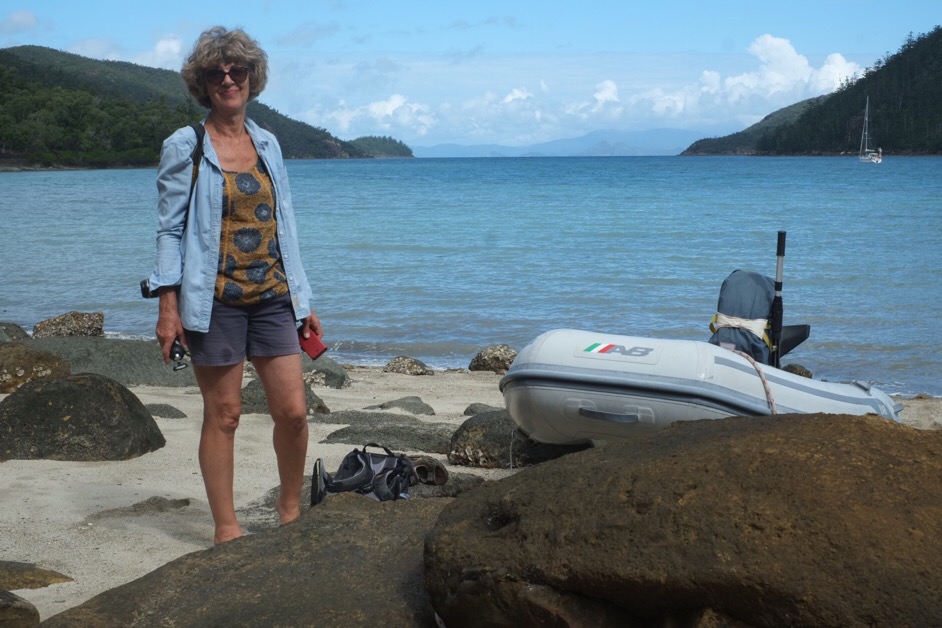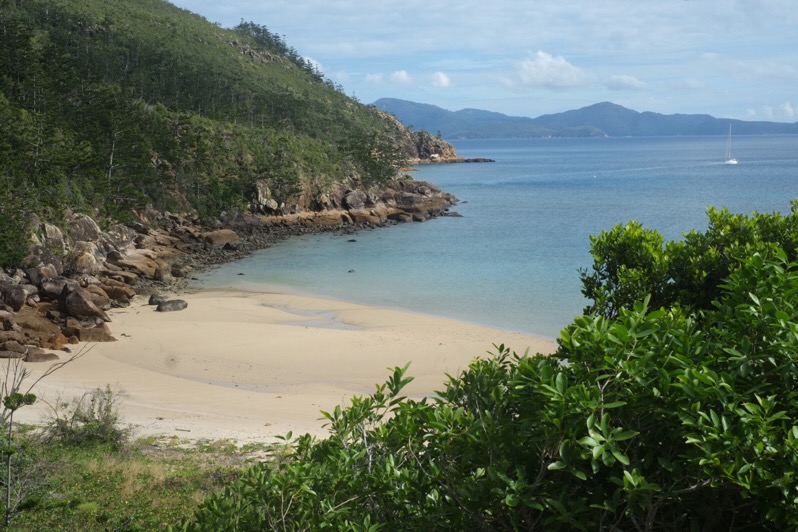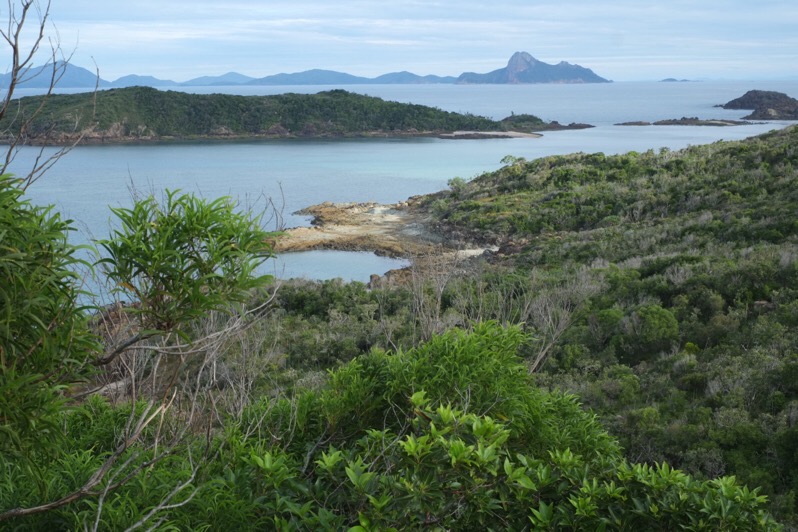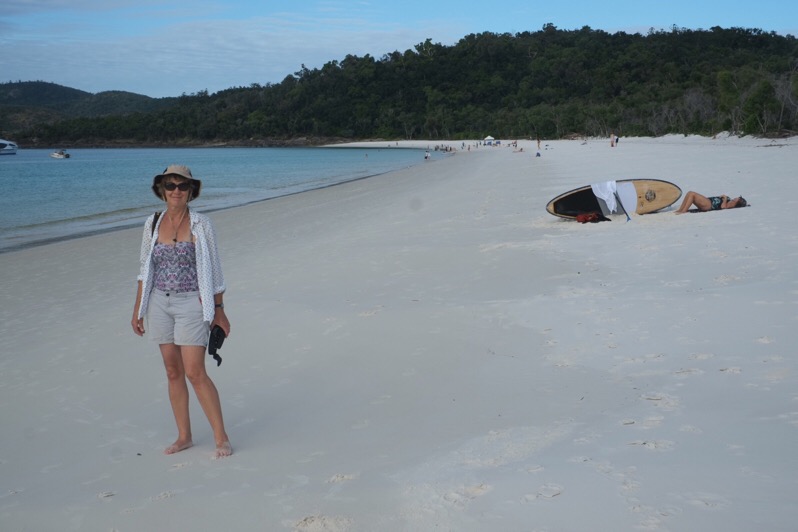conservatism (small c)

Vega
Hugh and Annie
Thu 13 Jun 2019 07:37
Human beings are inherently conservative. It’s how we have evolved. We live for the moment and see little merit in denying ourselves the present in the hope there will be a benefit for future generations. Self preservation in a hostile and dangerous world is what counts. We can be altruistic but only to the extent that it helps our own chances of survival. We resist change and feel secure in the certainty of known social, economic and political structures (particularly if we are amongst those that benefit the most from maintaining them). This inate conservatism is at the heart of Conservative politics and is why changes to political and economic structures and institutions to create a fairer, more equitable and habitable planet are least likely when controlled by conservative politicians.
Australia is a good example. Although climate change is a big issue - bush fires, droughts, the hottest summers on record and here in Queensland, a crisis for the cattle farmers as there hasn’t been enough rain to sustain the grass feedstock - people here can be, from what we see, extremely conservative even by British standards, from whom presumably Australia’s conservatism originated. Instead of climate change being a cross party issue affecting all Australians, it is fiercely political. The Labour Party proposes reduction in the use of fossil fuels to help combat climate change, the Conservative party values the jobs provided by the export of coal as more important. Short term jobs over saving the planet. Instead of working for a consensus to reduce coal production and to promote an alternative economic model the re-elected Conservatives will take their election as the green light to continue to promote Australia as the worlds largest coal exporter and to continue to denigrate the scientists warning of the consequences.
America is another good example. Not just on climate change but on anything where America’s interests are perceived to be more important than those of anyone else. Within America self interest trumps the common cause - hence extremely conservative values, extreme social and economic inequality and life outcomes which, for most people, are worse than anywhere else in the developed world. And this is what the UK seems to be aspiring to.
Of course we as a species can and have adapted to changing circumstances and recently we encountered an example of this. 9000 years ago the Ngaro people foraged in a valley that was part of the Australian mainland. That valley is now a deep inlet on Whitsunday Island and as sea levels rose the people of the valley adapted, became islanders and developed new ways of survival. 9000 years sounds a long time to us short sighted humans but it is only the same timescale within which our agricultural forefathers in the UK cut or burned down the forest to create the landscape that we are now so familiar with. 9000 years ago what is now Great Britain was only just becoming an island as sea levels rose after the last ice age and the river valley between what is now the UK and the rest of mainland Europe became the English Channel (and a large area of eastern “England” became the bed of the North Sea). Presumably the newly agricultural and isolated population needed to produce more food than the remaining forest could provide.
As sea levels continue to rise, water shortages and crop failure around the world intensify and population movements start to respond, how are we going to adapt? It seems to me that the world population will inevitably be smaller (it will have started reducing by 2050 due to falling birth rates in any event and assuming we make it that far). I imagine all those pension funds pinning their hopes on the maintenance of the BP share value are not clamouring for reductions in oil use to stave off mass population displacement and starvation. Those who least perceive the potential impacts and yet are in the best position to do something about it are not going to change their lifestyle unless forced to. I was conscious of this when promoting wind turbines to supply electricity to a large quarry in Somerset that would have reduced its carbon footprint by 50% but with opposition from those who would not see beyond the view from their back gardens. We had one part of government incentivising local generation of electricity and another imposing an effective planning embargo on land based wind generation. Altruism is to promote self interest not a better world for all. This is the consequence of our inherently conservative nature.
This same conservatism has led to the Brexit fiasco. The majority has voted for something that will, as we are well informed, make us all worse off. I think it is fair to assume that working more closely with our European neighbours to make the world a better place was not one of the motivations for this. The current political impasse is simply about how much worse off our politicians wish us to be. And, as seems ever more likely given the current turn of events, the worst case no deal scenario - led by Conservative politicians - is now very much back on the table. Unsurprisingly the Brexit vote has coalesced around the Brexit Party, making it the single largest party by number of MEP’s. What won’t be broadcast through our conservative press is that more people actually voted for remain supporting parties than for the Brexit party. The Tories will take the success of the Brexit party as the signal that the country wants us out, deal or no deal. The real danger of this is that those leading us out of Europe really do believe in a world of private equity, by-passing government tax regimes, privatising public service and replacing government with the market run by private equity. You can see this happening now as wealth is drawn from the majority and acquired by a rapidly wealth accruing minority operating through tax havens. International corporations such as Amazon have tax avoidance at the heart of their business model. Why else are the likes of private equity fund holder Reece-Mogg leading the charge?
There is one particular irony about conservative politics. The more we cling to traditional values, institutions, economic models and defer to individual aggrandisement the more insecure the majority becomes. The model wants us to be insecure; ask any Sports Direct warehouse employee toiling on minimum wages under a zero hours contract for multi millionaire Mike Ashley (actually they probably wouldn’t reply, they would be too scared to). Just look at what has happened to salary levels and job security among the professions, particularly in the public services. The market wants us to be easy to hire, easy to fire, cheap to employ but just wealthy enough to buy those made in China Dysons that make James Dyson one of the country’s wealthiest individuals and biggest landowners.
Solutions to inequality, climate change and environmental degradation are least likely to come from conservative political sources. You may argue that the free market will inevitably change in order to secure its own survival but there is precious little evidence of that currently. It will change only to the extent required to ensure the survival of those that control it. Only by a more progressive, socially inclusive shared approach can we change things - and just look at how the forces of conservatism are and will continue to resist that (Brexit, the Brexit Party, most of our press, the Conservative Party, our 19th century political institutions). But of course there isn’t a binary choice. We can’t achieve anything without the ethic to work hard for it; without responsible economic policy; without self reliance. All traditional conservative values but just harnessed for the common good, not that of the powerful and manipulative minority.
There is a glimmer of hope. When there is a choice between conservatism and hope for a better future, people - quite possibly the majority - are prepared to support parties they feel are most likely to work for this if the recent election is anything to go by. Our parliamentary electoral system will continue to deny them the representation that a democracy should provide of course which is why the Tories will block any reform. We must not let conservatism deny the majority a better future.





